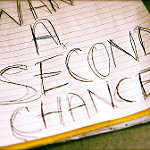The following would have been impossible even seven years ago:
This week I sold the film/tv rights for a memoir that a major publisher took out-of-print in 2013. But because of the indie-publishing revolution, the author had made her memoir available in the digital realm. Because of that, it was discoverable by a major Oscar-winning director and producer who not only took an interest, but also optioned the rights for television.
Sounds like fiction, doesn’t it? Back in 2005, I met Kim Reid at the Pikes Peak Writers Conference in Colorado Springs. Kim had made a pitch appointment, but she pitched me a novel that didn’t sound right for my list. However, in the course of our conversation, I learned about her extraordinary childhood as the daughter of one of the lead detectives who helped solve the Atlanta child murders, committed by Wayne Williams in the seventies and eighties.
I immediately told her, “You need to write that. I could definitely sell it!” So she did, and I signed her as a client. It took sixteen months of dogged determination, and Kim surviving a slew of rejections, but I finally sold No Place Safe in June 2006.
Kensington Publishing did a lovely job with it. Good packaging. Wonderful editing. And then the book was published, and bookstores shelved it, oddly, in African American Studies rather than in biography, where it truly belonged. I can honestly say that the shelving diminished the book’s discoverability, as well as its ability to sell.
Heartbreaking. By 2013, the work was out-of-print, and the rights reverted to Kim.
Luckily, the digital revolution happened. So Kim, in partnership with NLA Digital LLC, indie published the memoir to give it a second chance at life. Director/producer John Ridley found it. Bought a copy. Read and loved it so much that he convinced ABC Studios to buy it for him.
Suddenly, a memoir that would have dropped completely from sight was saved by publishing’s digital transformation. This title now has a ton of exciting new possibilities unfolding.
This is why I love agenting in the digital age. Authors have so many more options available now. And this particular terrific story happened to a very worthy book!
Photo Credit: Alyssa L. Miller


Saw that announced earlier–it is a wonderful thing to have happened. Congratulations Kim and Kristin!!!
Please explain to me how is it that in today’s digital world a creative person cannot put anything in a computer or a mobile phone without the possibility of it being hacked and the work stolen by a bunch of PARASITES that occupy the digital world?!
How i am supposed to write anything and have it published when the minute I write something it is ripped off? Even the first damn page!!!
Where should a person go to get refuge?
I can think of better places to vent this–i.e. a writers’ forum–but since the problem is a common one, let me pass on a few suggestions.
1. Don’t link your computer and your cell phone. This is like building a fancy house and installing a stained glass door in a neighborhood where everyone else is using steel cores and seven-digit punch locks.
2. On computers connected to the Internet, you should have an up-to-date firewall. Google for the most effective ones, and get input from people associated with the tech industry. The geeks know what works.
3. Don’t compose on, or email manuscripts from, your cell phone. Cell phone security, for all that it’s supposed to work, is questionable at best.
4. And finally. If you really want to make sure that a manuscript cannot be electronically stolen, do your composing and storage on a computer that has NO INTERNET CONNECTION whatsoever. No remote this or wave that. No hooking up to download. Make your backups to flash drives and don’t use them on other computers or lend them to your friends. When you’re requested to submit a manuscript, do it from a computer with a secure connection and up-to-date software. At least where I come from, the public library is not bad in this respect. Their computers have to take a lot of abuse, and their firewalls need to be solid.
Best of luck to you in future!
****
And returning to topic, I’ve long wanted to see a workable platform for writers out-of-print. It’s exciting to see this play out–and Kristin, I’m so glad you shared it.
That’s amazing!